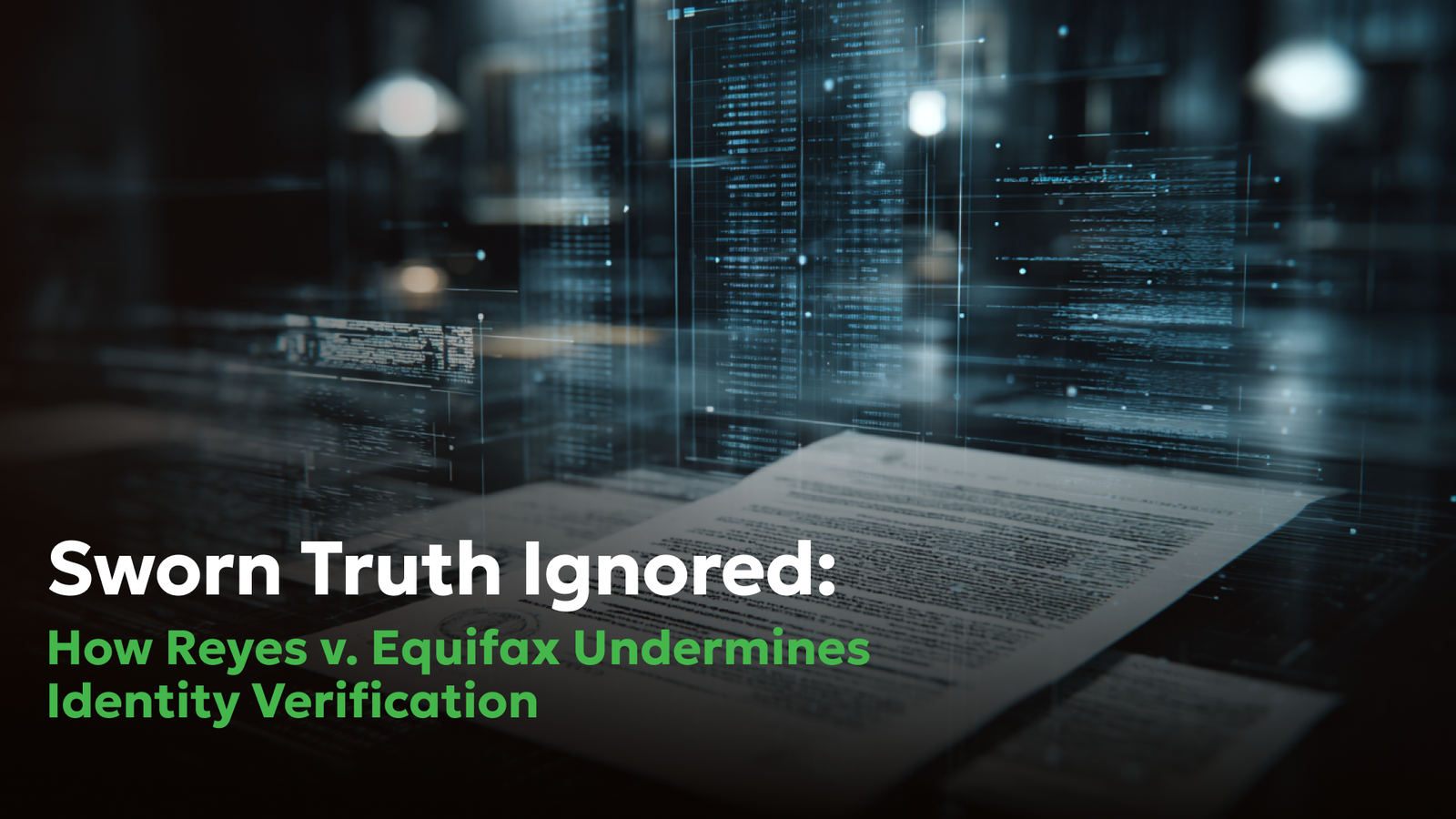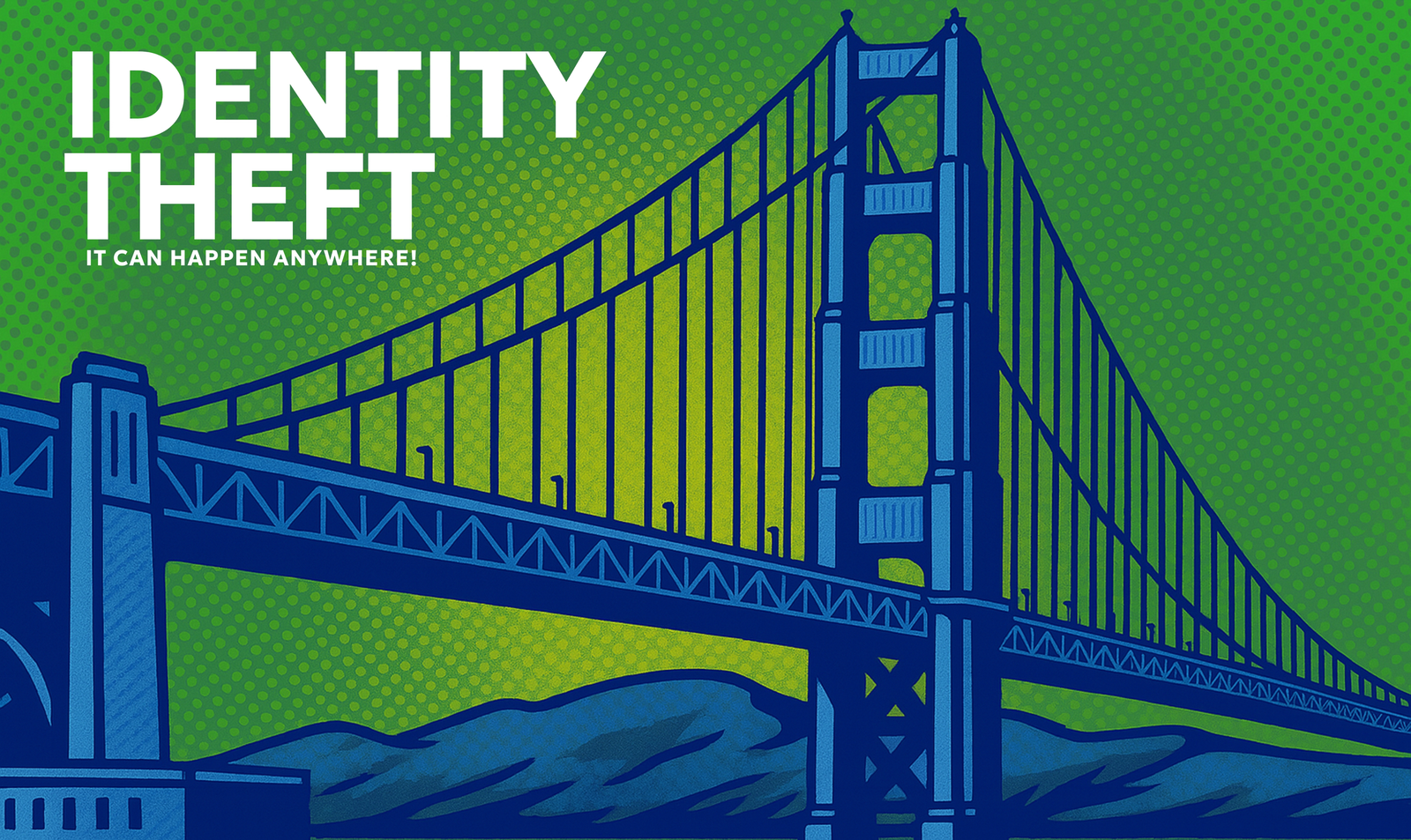Signs of Identity Theft
- Blog
- Credit Report Identity Theft
Signs of Identity Theft

Be vigilant against identity theft by knowing the signs it’s happened and catching it before it can harm you worse!
You do what you can to prevent identity theft. You're vigilant with online accounts and careful with what you share online. Unfortunately, identity thieves are very motivated and sometimes successful. Minimizing the damage requires looking for the signs of identity theft so you can stop the identity thief from ruining your credit and ruining your life.
You did everything that your IT department told you to do. You are careful about what you post on social media, you have sophisticated passwords, you are careful about where you buy things online, and you generally adhere to online safety protocols. Nevertheless, because identity thieves are highly motivated and can also be highly sophisticated, your identity was stolen. No one is completely immune from identity theft. However, there are ways to minimize the damage that these identity thieves can do to your credit report and your life. The best way to minimize the damage is to catch identity theft early.
There are many reasons to regularly review your credit report. As consumer lawyers, we encourage people to regularly review their credit reports for inaccuracies and errors to prevent those inaccuracies and errors from doing damage to their credit status. Another benefit of regularly and routinely reviewing your credit report is that you can readily identify any signs of identity theft and freeze your credit before the thieves can do more damage.
We are a law firm devoted to fighting for and defending the rights of consumers. Too often, we see consumers who have suffered from identity theft. This article identifies the early signs and indicators of identity theft. Review them and then regularly review your credit report so you know if your identity has been stolen. Being an early victim of identity theft, while not fun, is way better than letting identity thieves have their way with your personally identifiable information.
Warning Signs of Identity Theft
Ideally, we all employ enough caution to prevent identity theft. But sometimes identity thieves succeed. How do you know if your identity has been stolen? Here are some warning signs:
A Company Notifies You About a Data Breach Incident
We hear about these with some frequency and we see them on the news: the alerts that cybercriminals have successfully executed a data breach at a retail store, an online merchant, a financial institution, or any other entity that stores large quantities of people’s data. This is a sign that your personally identifiable information is at risk. As such, you should review your credit report for any unusual activity.
Your Credit Score Is Unexpectedly Decreasing
If you are receiving notifications from any or all of the three major consumer reporting agencies - Equifax, Experian, and TransUnion - that they are lowering or adjusting your credit score and you haven't made any large purchases or taken any new credit yourself, it could be a sign that someone else is. You might also have a credit score tracker and notice it going down by itself. Either way, this could be a sign that someone has stolen your identity.
It’s never too early to contact a credit report dispute attorney. If you notice your credit score decreasing without explanation, contact a credit report attorney for advice on the next steps.
Unexplained Withdrawals Appear on Your Bank Account
Anytime you identify a withdrawal from your bank account that you do not recognize, it could be a sign that an identity thief has gained access to your account.
There Are Charges on Your Credit Card That You Cannot Explain
Similar to unexplained withdrawals in your bank account, if you see any credit card charges that you can neither explain nor recall, this could be a sign that someone has stolen your credit card information or your identity. Identity thieves often use credit cards as a means to test how vigilant their intended victim might be. Do you check your credit card statement every month? Do you let a few low-dollar purchases slide? Or are you vigilant?
Credit Card and Bank Statements, Along With Other Bills, Stop Appearing
Some identity thieves will change their victims’ addresses so the victim stops receiving statements, bills, and anything else that might alert them to fraudulent activity. If you've noticed that you haven't received a credit card statement, Bank statement, or credit card bill in a while, it could be a sign of identity theft.
Debt Collectors Contact You About Debts That Are Not Yours
If a debt collector contacts you about an outstanding debt that you do not recognize or that is just plain not yours, it could be a sign of identity theft, since it takes some time for debt to end up in the hands of a debt collector, you should act with some urgency.
Denied a Loan or Credit Card
If you apply for a loan or credit card and are denied that loan or credit card despite having good credit, this could be a sign of identity theft. lenders and credit card companies inevitably check your credit report before extending additional credit. If they have checked your credit report and have seen something that you haven't, that could be a sign that your identity has been stolen.
Accounts on Your Credit Record That You Did Not Open
When you do check your credit report and see accounts that you neither recognize nor recall opening, you can be almost certain that someone has stolen your identity. Furthermore, not only have they stolen your identity, but the identity thief or thieves have been rather aggressive in opening up new accounts.
Merchants Reject Your Checks
Just like when a credit card company surprises you with a denial on a new credit card application, if you try to pay for something with a check and the merchant rejects it, that could be a sign of identity theft.
Multiple Filings to Your Taxing Authority Are Noticed
When you try to file your taxes and receive notice from the IRS that someone already has, you have likely been a victim of identity theft.
You Receive a Charge but Have Not Made Any Purchases From the Company
If you receive a bill for an item or service that you did not purchase, that is a sign that someone else has purchased that item or service, that someone else might be an identity thief.
The Earnings on Your US Social Security Statement Do Not Match Your Records
If you notice any discrepancies in your Social Security earning statement, that could be a sign that someone has stolen your identity and is using it for their employment.
After Running a Credit Check, a Landlord Denies Your Request to Rent an Apartment
Just like lenders and credit card companies, landlords and property managers will check your credit report to determine if you will be a good tenant. If a landlord or property manager denies your rental application and you believe you have good credit, that could be a sign that your identity has been stolen.
An Expected Employment Offer Following a Background Check By the Company Is Not Received
Just like landlords and property managers, employers will sometimes review a job candidate’s credit report to determine their reliability, especially if the job requires financial responsibility. If you authorize a potential employer to run a background check or a credit check and you unexpectedly do not get a job offer, that employer must tell you what negative information was on either report that prompted them to make that decision. Examine the report and if you do not recognize whatever flaw that potential employer identified, your identity may have been stolen.
Insurance Costs Go Up Significantly Even if No Claims Are Made
If your insurance premiums unexpectedly increase and you cannot identify any reason for it, it could be a sign that someone has stolen your identity and is using it for their insurance claims.
Call Us if You Think Your Identity Has Been Stolen
If you notice any of the above warning signs, you should act quickly to prevent any further damage and to protect yourself. Contacting a consumer protection attorney is the best way to address the potential theft and prevent any further damage to your credit report and your life.
An experienced attorney will guide you in all the steps necessary to recover your identity. That will likely include police reports and disputing all the fraudulent transactions and accounts with the credit reporting companies. We know how to do this, and we do it well. But inevitably, some cases need legal intervention to be settled. We can do that also, whether that means suing the thieves or suing uncooperative consumer reporting agencies.
Contact us by:
- Emailing us at info@consumerattorneys.com to request a meeting with an attorney.
- Calling us at 1-877-615-1725.
We can mitigate the damages, negotiate a fair settlement, and support you the entire way.
Frequently Asked Questions
Yes, identity theft can significantly affect your credit. Identity thieves want your personally identifiable information so they can open new credit accounts and take out loans in your name, and because they have no intention of repaying it, their fraudulent activity will have a devastating effect on your credit. The unpaid debts, the hard inquiries, and the high credit utilization rates will severely impact your credit score. This will make it difficult for you to obtain new loans, take out a mortgage, rent an apartment, and even get a job. You must regularly review their credit reports to catch this sort of activity quickly and minimize the impact of the theft on your credit.
To check if your identity has been stolen and used, you should regularly request copies of your credit report from the three primary consumer reporting agencies - Equifax, Experian, and TransUnion - and review them thoroughly. Review the accounts section to see if there are any open accounts that you do not recognize. Review the inquiries section to see if there are any hard inquiries that you do not recognize. Either could be a sign that an identity thief has your information and is either trying to open new credit or take out new loans in your name or has already done so. If you see any suspicious activity, contact the consumer reporting agency and tell them you want a credit freeze. Then, call Consumer Attorneys.
While everyone has some risk of having their identity stolen, some people are more at risk. People who share too much on social media, who shop online frequently, who are not purposeful about opening emails and text messages from people they do not know, and who generally do not use proper online privacy and security procedures are at high risk of identity theft. Children are primary targets of identity thieves. Their clean credit histories and the fact they will likely not need to check their credit reports make them attractive targets. Similarly, the elderly may not be aware of the most secure online practices, increasing their risk of identity theft.
While no one is immune from the dangers of identity theft, some places are more vulnerable to identity theft than others. On a per capita basis, the top states for identity theft in 2023 were Washington DC, Georgia, Florida, Nevada, and Delaware. In 2023, Washington DC had 261 identity thefts for every 100,000 people. Based solely on the number of thefts, the reported cases of identity theft follow the largest states proportionately. In 2020, California had nearly 150,000 identity thefts. Rounding out the top 10 were Illinois, Texas, Florida, Georgia, New York, Washington, Massachusetts, Kansas, and Pennsylvania.
There is no “type” of person who commits identity theft. Identity thieves can range from a team of sophisticated cybercriminals (who mastermind large-scale data breaches of financial institutions, stealing massive volumes of personally identifiable information) to individuals who happen upon someone’s Social Security number on a public computer. Some are merely motivated by greed, while others are motivated by hardship. Some employ sophisticated psychological analysis to exploit a person's vulnerabilities, while some will just use the personally identifiable information found in a stolen wallet to open up new credit cards. Additionally, since methods to thwart identity theft are always changing, cybercriminals are always improving their methods.


Daniel Cohen is the Founder of Consumer Attorneys. Daniel manages the firm’s branding, marketing, client intake and business development efforts. Since 2017, he is a member of the National Association of Consumer Advocates and the National Consumer Law Center. Mr. Cohen is a nationally-recognized practitioner of consumer protection law. He has a we... Read more
Related Articles




R
ONGS™You pay nothing. The law makes them pay.






